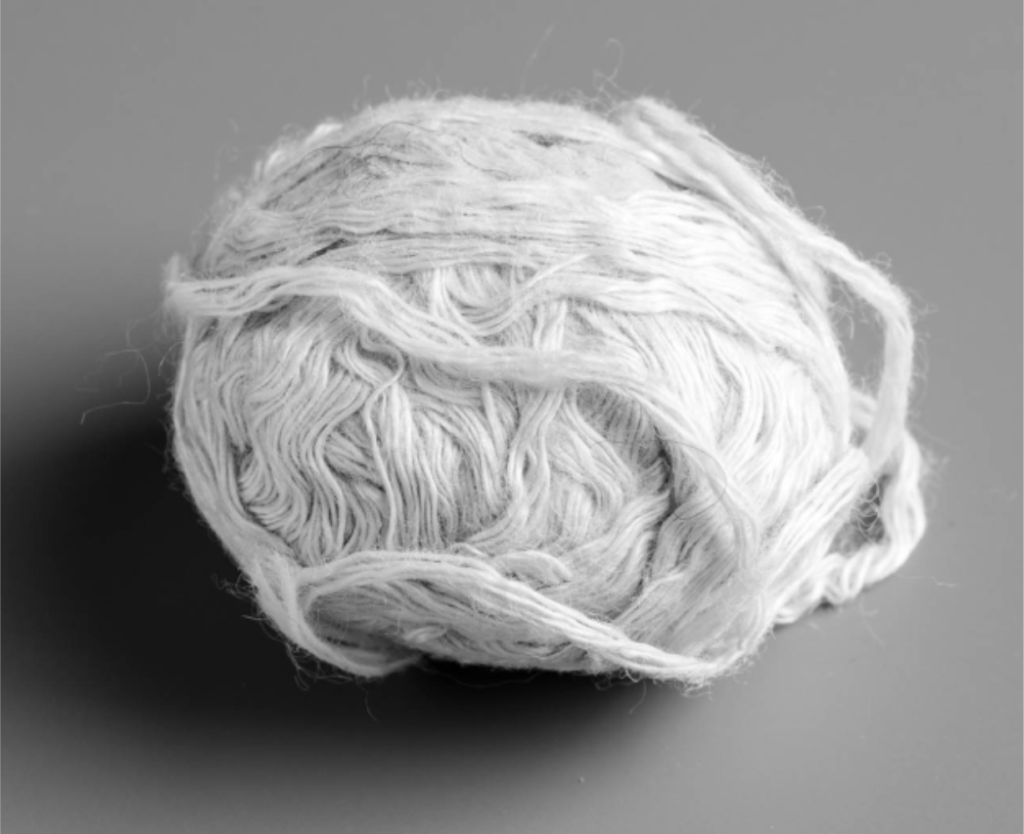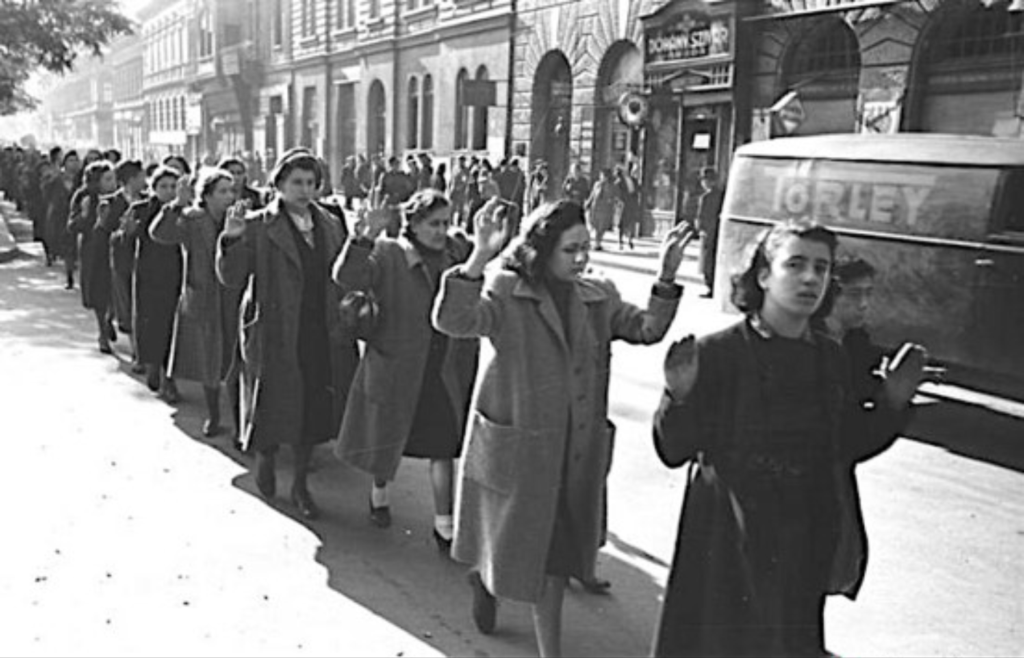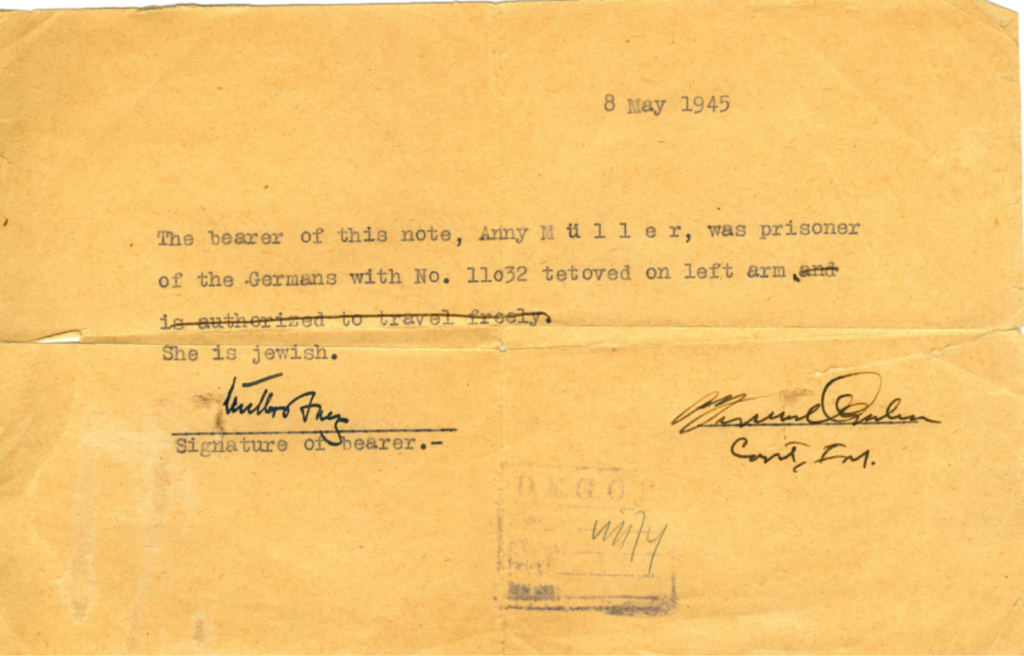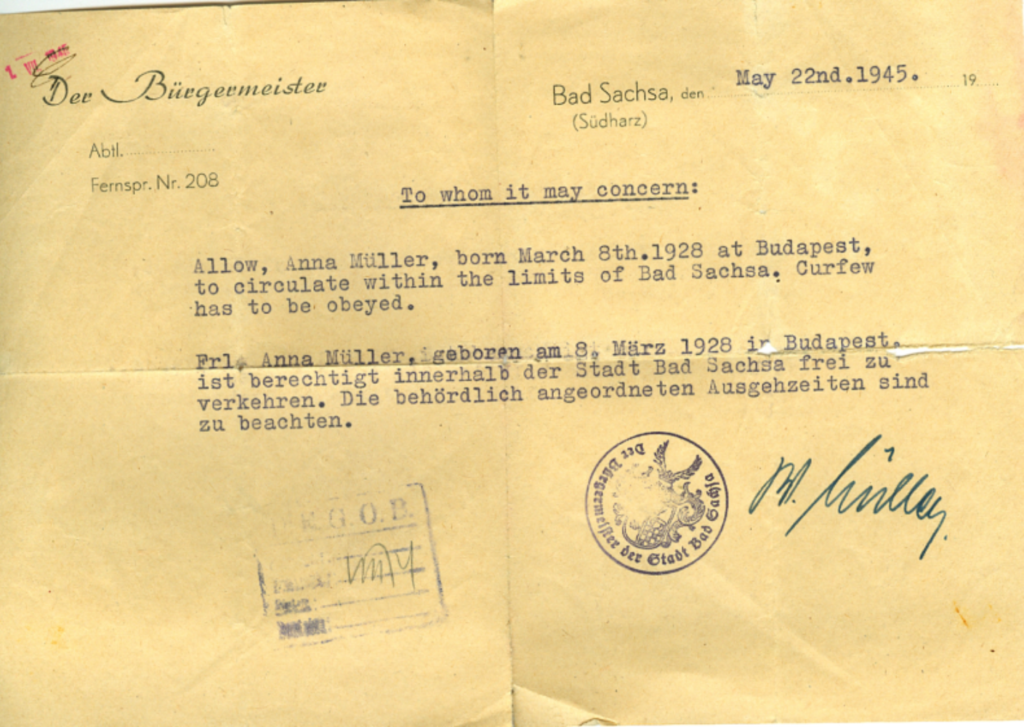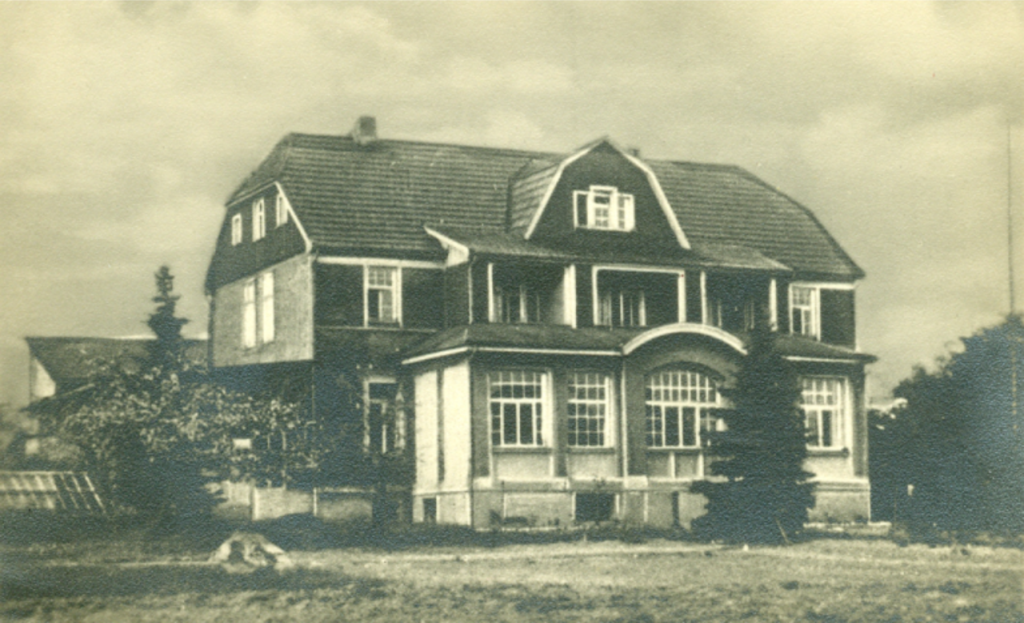COTTON STOLEN FROM A CONCENTRATION CAMP / Anikó Heller
I was deported from Rákospalota together with my mother, my grandmother, and my nine-year-old sister. My father was taken to labour service long before, and he “did not return” (as we euphemistically said for decades). When we arrived at Auschwitz-Birkenau, I was herded into the camp, while my grandmother, my little sister, and my mother, who would not let go of her little daughter’s hand, were gassed immediately. I became a “Schreiberin”, because I spoke German like a native.
Later I was transferred to the prison camp for saving the life of a little Polish girl.
If life was hell in B II/b, then life in the FKL was the seventh circle of hell. I would not have been able to survive for more than two or three weeks there. The only thing one could do there was to slowly waste away.
One day “[…] a Polish girl, also a prisoner, appeared with a list of names, or rather numbers, saying that the girls with these numbers would be sent to work. This was the best thing that could happen to anyone there. She read out the numbers of all the friends I made in that place – but not mine. The other women stepped forward, while I was left to stand there alone from our group.” One of the girls, who had earlier discovered some jewels sewn into the cuff of her dress, “[…] went up to the Polish girl and asked her to add my name to the list, offering a piece of jewellery in return. The girl with the list looked at her in surprise and asked what she could possibly do with a piece of jewellery in this place. We started explaining that perhaps she would be able to hide it, and she will hopefully be freed and then it may prove useful. She thought for a while, and then agreed to add my name to the list, although she was afraid that she might get in trouble. This is how I managed to leave Auschwitz.
We were put on lorries, then transported by train to the Sudetenland, to Zillerthal at the foot of the Giant Mountains. This place belongs to Poland today, it is called Mysłakowice. There was a large factory here, and we worked in the textile processing division. We lived in the nearby barracks. It was bitterly cold at the foot of the high mountains. […] During the very first Appel they asked which of us were weavers or had completed secondary school. I told them I had, even though I was only sixteen and a half. This was a smart move, as I, alone of my acquaintances, was put to work at the cotton mill, where the working conditions were much better than elsewhere. […] We worked for 12 hours at the factory every day.
[…] My friends urged me to steal some yarn, as I was the only one who had the opportunity to do so. But I dared not do it, I was afraid. However, they insisted until suffering from the cold proved stronger than my fears. We only used a thin white yarn at the loom, this was all I could get. Then in the barracks we folded it twelve times to make it suitable for knitting.
Although my workplace was better than that of the others, they could meet and talk to the male French and Italian prisoners. […] The men made knitting needles for us out of the rods used to prop open the windows. I started knitting eagerly. I wanted to knit knickers for myself because I was so cold. But the needles were rusty, and it was nearly impossible to move around on the needle what I had knit the previous night, so I made very little progress. I was only able to knit half of the knickers while we were there, and when we were evacuated, I put it on my head (I had hardly any hair). I still keep a small spool of the stolen yarn.”
